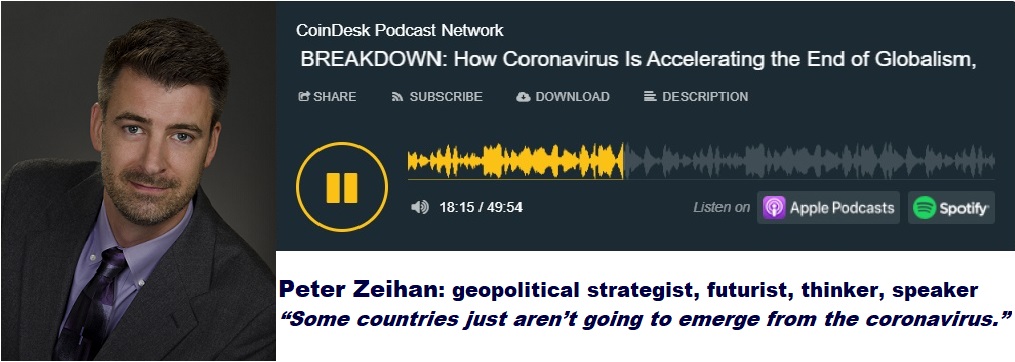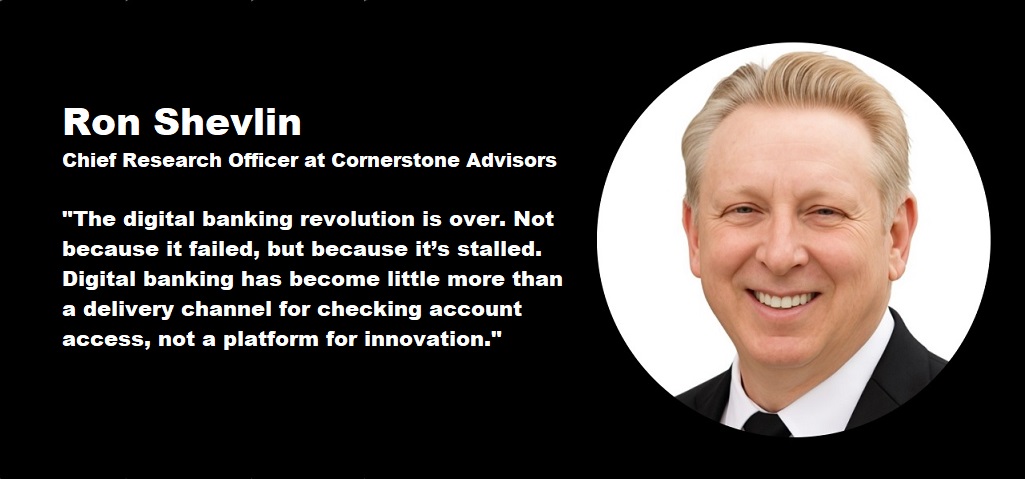Podcast: How coronavirus is accelerating the end of globalism

Peter Zeihan is one of the world’s foremost geopolitical experts. In his new book “Disunited Nations: The Scramble for Power in an Ungoverned World,” Zeihan argues we’re at the end of the largest expansionary period in human history. As America withdraws from global leadership, a totally new (and for most parts of the world, more painful) „normal” will emerge.
On this podcast, Zeihan joins The Breakdown to discuss why the coronavirus crisis is rapidly accelerating the end of the era of globalization.
. How the American-led global order used the dollar as the tool to keep the world together
. Why geopolitics and demography are coinciding to end the era of globalization
. Why the coronavirus will spark a massive return of American manufacturing
. Why, when it comes to the dollar’s status as the world’s reserve currency, “Never before has the “exorbitant privilege” of being the world’s reserve currency felt more exorbitant or more like a privilege.
. Why the crisis could spell the end for the euro
. Why China isn’t nearly as well positioned in the post globalization era as many assume
. Why the best positioned countries in the coming era are the U.S., Japan, Argentina, France and Turkey
Peter Zeihan is a geopolitical strategist, which is a fancy way of saying he helps people understand how the world works. Peter combines an expert understanding of demography, economics, energy, politics, technology, and security to help clients best prepare for an uncertain future.
Peter is a critically acclaimed author whose books — The Accidental Superpower and The Absent Superpower — have been recommended by Mitt Romney, Fareed Zakaria and Ian Bremmer. Peter is also a highly sought after public speaker. With a keen eye toward what will drive tomorrow’s headlines, his irreverent approach transforms topics that are normally dense and heavy into accessible, relevant takeaways for audiences of all types.
Peter’s third book, Disunited Nations, is available starting with March 2020.
About the book
The world is entering its greatest period of change in nearly a century. America’s allies depend on her commitments for their economic and physical security, and they hope the Trump administration’s positions are an aberration. This hope is misplaced.
The world has gotten so used to the “normal” of an American-dominated Order that we all have forgotten the historical norm: several smaller, competing powers and economic systems throughout Europe and Asia. The period of American hyper-involvement in global affairs is ending. The impacts on global energy and agricultural markets, finance and technology will be transformative, but the heirs to the dying Order are not who you think. Russia, India, China and Brazil will not be the superpowers and wunderkind of the future. Rather, names familiar and new will be taking charge of the emerging global Disorder.
Germany will decline as the most powerful country in Europe, with France taking its place. Every country should prepare for the collapse of China, not the rise of North Korea. We are already seeing, as he predicts, a shift in outlook on the Middle East: it is no longer Iran that is the region’s most dangerous threat, but Saudi Arabia.
Dariusz Mazurkiewicz – CEO at BLIK Polish Payment Standard
Banking 4.0 – „how was the experience for you”
„To be honest I think that Sinaia, your conference, is much better then Davos.”
Many more interesting quotes in the video below:










